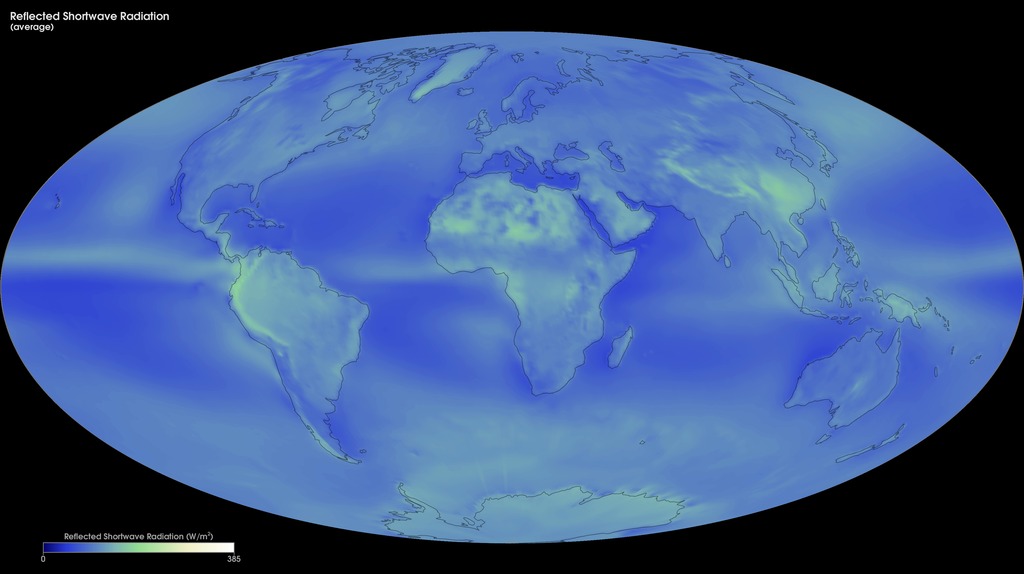A newer version of this visualization is available.
Monthly Reflected Shortwave Radiation
If you look at Mars in the night sky, the planet is little more than a glowing dot. From Mars, Earth would have the same star-like appearance. What gives the planets this light? Do they shine like a star? No. The light is mostly reflected sunlight. These images show how much sunlight Earth reflects. Bright parts of Earth like snow, ice, and clouds, reflect the most light; dark surfaces, like the oceans, reflect less light. Earth's average temperature is determined by the balance between how much sunlight Earth reflects, how much it absorbs, and how much heat it gives off. These maps show monthly reflected-shortwave radiation from July 2006 to the present, from the Fast Longwave And Shortwave Radiative Fluxes, or FLASHFlux, Time Interpolation and Spatial Averaging (TISA) data product. The product contains daily observations collected by the Clouds and the Earth's Radiant Energy System (CERES) sensors on NASA's Aqua and Terra satellites. The colors in the map show the amount of shortwave energy (in Watts per square meter) that was reflected by the Earth system. The brighter, whiter regions show where more sunlight is reflected, while green regions show intermediate values, and blue regions are lower values.
Monthly reflected-shortwave radiation using CERES data, 2006 to present.
For More Information
Credits
Based on imagery by Jesse Allen, NASA Earth Observatory, based on FLASHFlux data. FLASHFlux data are produced using CERES observations convolved with MODIS measurements from both the Terra and Aqua satellite. Data provided by the FLASHFlux team, NASA Langley Research Center.
-
Visualizers
- Marit Jentoft-Nilsen
- Jesse Allen (Sigma Space Corporation)
Release date
This page was originally published on Thursday, October 24, 2013.
This page was last updated on Sunday, February 2, 2025 at 11:31 PM EST.
Series
This page can be found in the following series:Datasets used
-
[Aqua: CERES]
ID: 149The CERES instrument aboard many Earth-orbiting satellites records the flow of reflected Solar radiation and reprocessed longwave radiation in the Earth's radiation budget.
See all pages that use this dataset -
Reflected Solar Radiation [Terra: CERES]
ID: 486 -
FLASHFlux (Fast Longwave And SHortwave Radiative Fluxes) [CERES]
ID: 884
Note: While we identify the data sets used on this page, we do not store any further details, nor the data sets themselves on our site.
